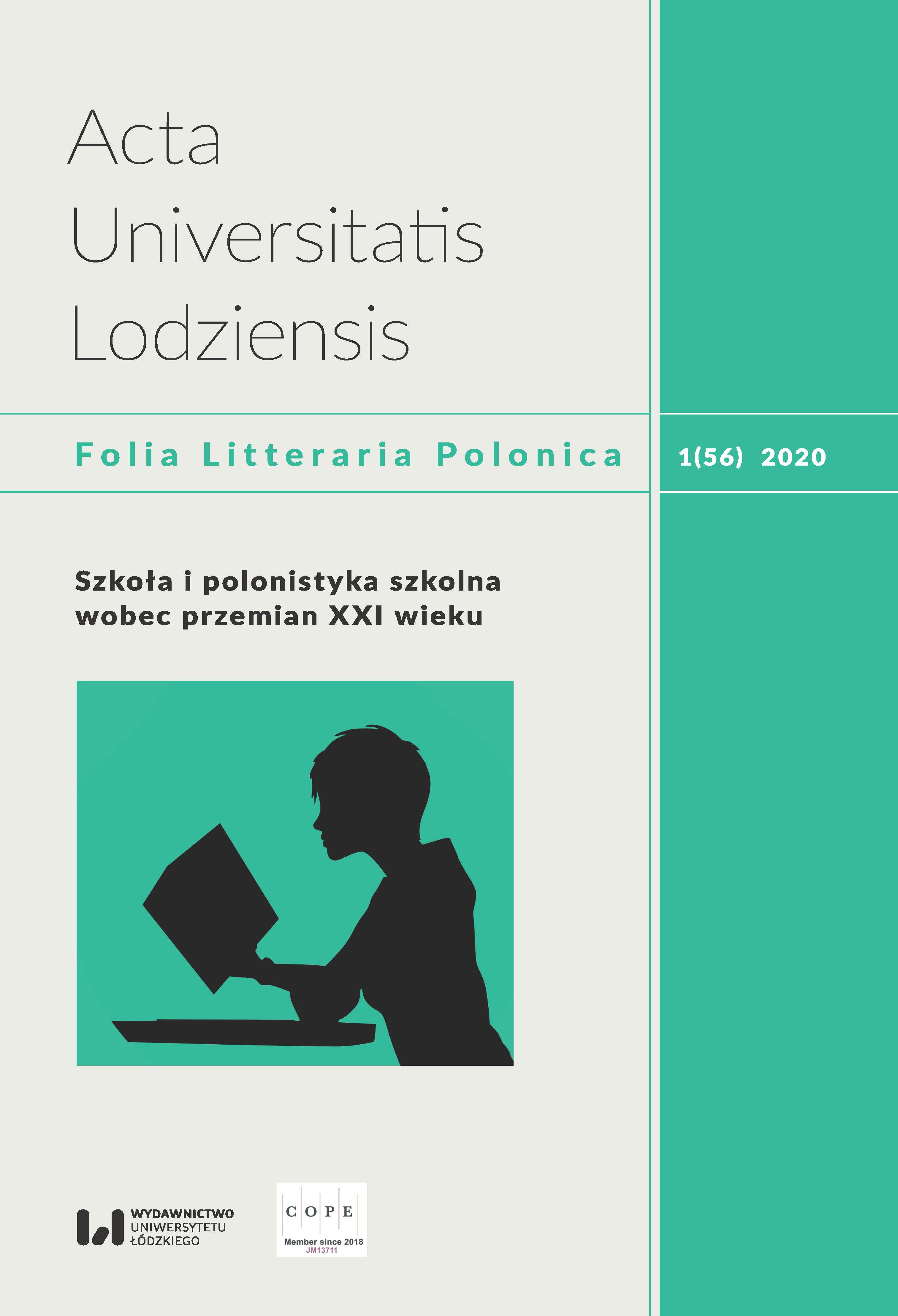Polish language studies at school in the light of student survey statements
DOI:
https://doi.org/10.18778/1505-9057.56.19Keywords:
Polish language studies at school, student, students’ interests, didacticsAbstract
The article presents results of the research conducted in 2017. It aimed at estimating how important for students of primary and secondary schools are Polish language lessons, in comparison to other subjects. The results are not surprising, however, they evoke a serious concern, since the students present lack of interest in their native language and literature. They do not perceive Polish language classes as important, nor do they reckon that these classes have any impact on their personal development. Poor knowledge of the material discussed in class raises a question if students feel that they should learn it at all, or how important it is to them. It may surprise even more, since the Polish language is also one of the subjects at the Matura exam. The author sees a chance to positively counteract the current situation in broad and comprehensive researches concerning the students, their development, needs and interests. The results of such research should be treated as a base for all the changes and reforms.
Downloads
References
Baley Stefan, Psychologia wychowawcza w zarysie, Państwowe Wydawnictwo Naukowe, Warszawa 1958.
Google Scholar
Dawid Jan Władysław, O duszy nauczycielstwa, wyd. 3., Nasza Księgarnia, Warszawa 1932,
Google Scholar
Gajda Stanisław, Wychowanie językowe wobec ponowoczesności, w: Wychowanie językowe, red. Jolanta. Nocoń, Wydawnictwo UO, Opole 2015, s. 17–25.
Google Scholar
Kompetencje współczesnego polonisty, red. Chrząstowska Bożena, WSiP, Warszawa 1997.
Google Scholar
Kowalikowa Jadwiga, Składniki polonistycznej kompetencji nauczycielskiej, „Zeszyty Naukowe UJ. Prace Historycznoliterackie”, z. 44, Warszawa–Kraków 1982, s. 11–17.
Google Scholar
Kuźma Józef, Nauczyciele przyszłej szkoły, Wydawnictwo UP, Kraków 2001.
Google Scholar
Kwaśnica Robert, Wprowadzenie do myślenia o nauczycielu, w: Pedagogika. Podręcznik akademicki, t. II , red. Zbigniew Kwieciński, Bogusław Śliwerski, Wydawnictwo Naukowe PWN , Warszawa 2003.
Google Scholar
Mysłakowski Zygmunt, Pisma wybrane, PZW S, Warszawa 1971.
Google Scholar
Plewka Czesław, Uwarunkowania zawodowego rozwoju nauczycieli, IBE , Warszawa 2009.
Google Scholar
Profesjonalny coach, czyli kto?, http://www.competitiveskills.pl/aktualnosci/profesjonalny-coach-czyli-kto-226.html (dostęp 22.09.2016).
Google Scholar
Schulz Roman, Nauczyciel jako innowator, WSiP, Warszawa 1989.
Google Scholar
Szuman Stefan, Takt pedagogiczny, Wydawnictwo Instytutu Pedagogicznego, Katowice 1974.
Google Scholar
Tutoring – poznaj innowacyjną metodę, http://tutoring.edu.pl/tutoring_definicja_innowacyjna_metoda,page,46 (dostęp 22.09.2016).
Google Scholar
Urbaniak Kamila, Kim jest coach i co może dla Ciebie zrobić – wywiad z Adamem Gieniuszem, http://kreatorniazmian.pl/kim-jest-coach-co-to-jest-coaching/#sthash.uQrsU6oi.dpuf (dostęp 22.09.2016).
Google Scholar
W kręgu danych i współczesnych teorii wychowania. Uczeń – szkoła – nauczyciel, red. Katarzyna Dormus, Ryszard Ślęczka, Wydawnictwo UP, Kraków 2012.
Google Scholar
Zadroga Aneta, Coach, czyli kto?, wyborcza.pl 25.10.2010, http://wyborcza.pl/1,76842,8563661,Coach_czyli_kto_.html (dostęp 22.09.2016).
Google Scholar
Downloads
Published
How to Cite
Issue
Section
License

This work is licensed under a Creative Commons Attribution-NonCommercial-NoDerivatives 4.0 International License.











